transformation
Cell C CHRO

Juba Mashaba
Transparent, decisive and principled
MultiChoice Group

Executive head of HR
Clement O’Reilly
It's about fulfilling work

transformation
Cell C CHRO

Juba Mashaba
Transparent, decisive and principled
MultiChoice Group

Executive head of HR
Clement O’Reilly
It's about fulfilling work
Within the time I started conceptualising this note and when it was due to meet the publication deadline, ChatGPT moved from version 3.5 to version 4.0. We have gone from “question, answer, summarise, writing” capabilities and added what some would say “digital and technology are changing at unprecedented speeds”.
There are two things that make this point in history unique. On the one hand, in the past technology was a relatively far-removed concept whereas today digital technology is very personal. Secondly, if we concede that technology is personal, we are confronted with the fact that nothing (or at least very few things) in our lives change at such a speed. We must hold both the existential dread and the excitement of the possibilities presented. When ChatGPT was asked how it will change or impact the HR function, in a matter of seconds there were use cases, ranging from screening in recruitment, enhanced candidate experience, performance coaching and data analytics to people insights informing HR strategy and decision making.
An almost glaring omission, and something we need to stay mindful of as a community, is the people aspect. HR as part of the business must of course strive to be more productive, effective, and efficient. Digital – be it chatbot, process automation, or predictive models – can augment what we do. We must be active participants, staying a step ahead in articulating and exploring the art of the possible.
By leading from the front, we empower ourselves to be credible voices when it is time to have the difficult conversations about ethics; like: what training data was used to predict team performance or to conduct the screening? Does the model calibrate for contextual differences? Hurdles with the potential to cause real-world harm include biases, technical errors, and a fundamental challenge to the current boundaries of data privacy.
At the risk of stating the obvious: augmentation is not replacement. A second layer of opportunity the profession is facing is the reframing of our role and value-add to organisations. How are we best positioned, augmented by digital, to address the challenges of our day?
Wellbeing remains a very human challenge and opportunity, especially mental and social wellbeing.
Another opportunity is how we think about, advise on, and build change resilience and adaptability. Once companies get to grips with the practical implications of these technologies, is it difficult to imagine swings in how business organises people, skills and capabilities?
To successfully navigate the “future of work” that we are living in, we need to fully embrace both digitalisation and human-centricity. I could go on for a few more pages about this endlessly fascinating topic, but perhaps ChatGPT 4.0 is best suited to help me close:
“While the use of language models and AI in HR poses both risks and benefits, it is crucial to recognise that these digital tools have the potential to transform the workplace for the better. By combining human-centric approaches with technological advances, organisations can make more informed decisions while still valuing the unique skills and perspectives of their employees. As such, it is important for companies to critically evaluate their use of language models and AI in HR and prioritise the creation of ethical, inclusive, and transparent practices that promote the wellbeing of both employees and organisations alike. With a thoughtful balanced approach, language models and AI can be powerful tools for driving positive change in the modern workplace.”
I wish us all an exciting and impactful 2023.
TSWELO KODISANG Group Chief People Officer, FirstRand CHRO Awards judge
BlueSky CPO Themba Chakela delves into the reasons why the mental health of employees should be prioritised – and not romanticised.
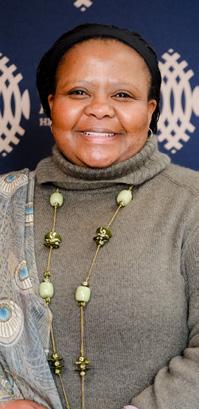
Elanie Kruger, group CHRO of Tsebo Solutions, explains how technology and innovation supports a geographically dispersed workforce with a large number of deskless employees.
46 Transparent, decisive and emotionally intelligent
Cell C CHRO Juba Mashaba talks about his role in leading people performance and strategy in a fair and principled way.


HR leaders get a seat at the CHRO Dinner table page 50
HR guru Michele Seroke, CPO at Motus, speaks frankly about how growing up in a matriarchal environment ignited her involvement in gender issues.
With a background in IT, MultiChoice’s group executive head for human resources, Clement O’Reilly successfully brings together people and systems.
60 Who guards the guardians?
Certified integral coach Trish Lees shares tips on how to reset and recharge - and avoid burnout in the C-Suite.
10 It’s a hat trick
2022 CHRO of the Year – and triple award winner – Njabulo Mashigo, HR executive director at Vodacom SA, reflects on her career and the hot topics facing business today

30 Insight, engagement, conversations & comedy at HR Indaba Live
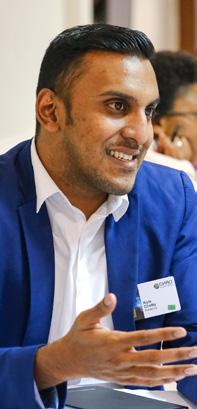
50 CHRO Dinners give HR a seat at the table
62 Spotlight on the Chief Humane Resources Officer
26 What climate change has to do with your company
42 The genius of the generation gap
Sungula Nkabinde Community Manager
snkabinde@chro.co.za +27 72 741 6171
Nick Smith Sales Manager nsmith@chro.co.za +27 72 741 6171
Contributors
Kgaogelo Letsebe Senior writer kletsebe@chro.co.za
+27 65 986 4413
Atlehang Ramathesele, Caylynne Fourie, Kgaogelo Letsebe, Nomahlubi Sonjica, Reabetswe Rabaji, Rirhandzu Nyathi
Associate editor
Ronda Naidu
rnaidu@chro.co.za
+27 82 695 9704
Photography
Patrick Furter
Content director
Georgina Guedes
gguedes@chro.co.za
+27 83 651 2789
Design Elizabeth Ferraris
Publisher
CFO Enterprises (Pty) Ltd
1 Wedgewood Link | Bryanston | Johannesburg | 2191 | South Africa

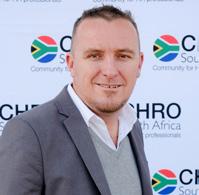
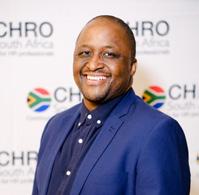
Managing director
Joel Roerig
jroerig@chro.co.za
+27 76 371 2856
Printing Novus Print
CHRO South Africa is the organisation for HR executives in South Africa. Our goal is to connect HR professionals online and through events and this magazine in order to share knowledge, exchange interests and open up business opportunities. For more information, please visit chro.co.za.
© 2023 CFO Enterprises (Pty) Ltd. All rights reserved. No part of this publication may be reproduced, distributed or transmitted in any form or by any means, including photocopying, recording, or other electronic or mechanical methods, without the prior written permission of the publisher, except in the case of brief quotations embodied in critical reviews and certain other noncommercial uses permitted by copyright law.
I have over the past few years been practising The Work by Byron Katie. It is a somewhat meditative practice, involving what is fundamentally four questions and a turnaround. One of Katie’s most memorable quotes is “when you argue with reality, you lose – but only 100 percent of the time”.
This resonates with me as recent reality has involved a pandemic, riots, floods, recurring electricity and water outages and a myriad other matters in my environment. On a more personal level, family members and friends have passed away, lost jobs, gone through acrimonious divorces and been the victims of crime.
Amid such negative happenings, The Work gives me a chance to take a breath and gain perspective. Chatting with HR leaders in our community has the same effect. It gives me the opportunity to learn how organisations are transitioning to what can no longer be called “the new normal” in a “time of unprecedented change”.
It has become clear, through the conversations I have had with CHROs over the past year that life is only getting more demanding and – as opposed to the Darwinistic approach of the industrial era – progressive HR executives are fast adopting a new way of working with human capital.
The cut-throat company cultures of the past, of unhealthy competition being incentivised, are being replaced with healthy collaboration. Where once HR was the paper pusher, instructed to implement decisions made by the board, the discipline has been elevated to board level – thus taking the conversations around employee value and wellness into the C-Suite.
Where once an employee was considered a cog without context, the workplace is now embracing the whole human. When I hear stories of the strategic transformation that our HR executives are pioneering, and see the metrics within their organisations, I no longer need to argue with reality.
This is simply because with employees experiencing such positive –and humane – change within their organisations, it is but a matter of time until these same individuals start to impact the broader society, the country and the planet.
So, every day I argue with reality a little bit less – because every CHRO that I come across shows me that we are all just doing the work.
RONDA NAIDU Associate editor
rnaidu@chro.co.za
+27 82 695 9704
in various positions at Unilever ultimately ending her 22 years at the company as human resources vice president Africa. Mechell, who will be relocating to Denmark soon, said she is excited to embark on the new adventure. “I am South African and will always have my roots here, but I will use this experience to engage with people from other walks of life, travel through Europe and do more hiking, hopefully.”
Nana Serapelo has been appointed human capital executive for Altron subsidiary Netstar.
She started her journey as a payroll administrator for a consulting company, moving quickly through the ranks in different disciplines from administration to consulting over the past decade.
Nana holds a post-graduate diploma in HR and is passionate about people development.
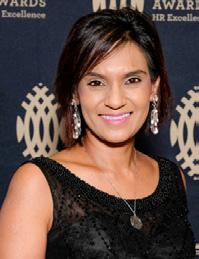
The former head of HR at A.P. Moller - Maersk Mechell Chetty has taken up a new position as head of people function Latin America, IMEA and Global Commercial at the integrated logistics company. Prior to joining Maersk in 2021, Mechell was
Former chief people officer of KFC Africa Akhona Qengqe has taken up the position of general manager of the leading food chain in Africa. Making her the first African woman to do so on the continent. Akhona will be replacing Dhruv Kaul, who is moving into a GM role for KFC Pan Europe. Akhona was appointed chief people officer in 2020 and prior to that she held the position of director from transformation and diversity.
Absa Group has appointed Jeanette Modise as its chief people officer. The accomplished human resources professional has extensive experience at executive level, driving HR strategy, operations, turnaround and digital transformation in local and global organisations

Jeanett has led HR, procurement and facilities management teams and strategic initiatives in fast-changing environments. Her
focus has been on culture, change and transformation in dynamic, customer-focused, growth businesses where the attraction, retention, and development of top talent is one of the key business drivers.
She has served as non-executive director on the boards of various companies for more than 20 years, and was most recently the group HR executive and director on the board of JSE-listed Sanlam Limited and Sanlam Life, as well as a member of the Social, Ethics and Sustainability Committee.
As the newly appointed head of HR at WeBuyCars, Bohlale Paile is responsible for the strategic ideation and execution of the human capital element of the business.
Prior to this, Bohlale was the head of HR and talent for Transaction Capital and head of graduate recruitment and development
at Bowmans. She has 13 years’ experience in HR.
Asoka Moodley has been appointed as group people and culture manager at Dr Oetker South Africa.
Asoka has 16 years’ experience in the HR space. She previously worked at Fury Motor Group as group HR manager, and has held various HR roles in the motor retail, IT, FMCG, oil and gas, recruitment, banking and education sectors.
Bulelwa Mamabolo has taken on the role of group HR manager at Medipost Holdings.
Bulelwa holds a BA (Hons) in psychology and a national diploma in human resource management. The keen advocate of lifelong learning has continued to expand her horizons with postgraduate courses, the most recent of which is a management and executive coaching course she completed through the University of Cape Town.
She was previously the group HR manager at Signa Group Shared Services. Bulelwa has gained experience in different facets of healthcare and the pharmaceutical
industry, including as HR manager for Imperial Centurion, and fixed contracts at Adcock Ingram (Aeroton) and the University of the Witwatersrand (Wits) Health Consortium.
Vasinthee Moodley has been appointed as the people experience director at Tiger Brands. The company says Vasinthee brings a wealth of experience gained from various leadership roles.
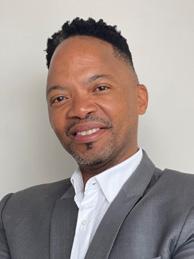
She started her career in the process engineering and quality assurance fields at Procter and Gamble (SA), before transitioning into the human capital space.
Vasinthee has held key roles in companies such as SABMiller, Consol, Nedbank, Absa Capital/Barclays, and Massmart. She was also the group talent executive at the FirstRand Group, where she was responsible for creating the first group-wide employee experience portfolio for the group.
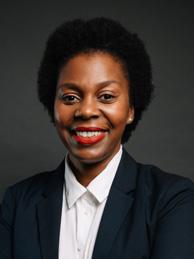
The local entity of global medicines company Novartis has appointed
Sonwabo Maholwana as head of people and organisation.
Sonwabo joins the company from Boehringer Ingelheim, where he was the human resources director for three and a half years.
He has a Management Advancement Programme (MAP) postgraduate qualification, an Industrial Relations Programme certificate and is currently studying a postgraduate diploma in Business Administration (PDBA) at Wits Business School. He boasts more than 20 years of experience in enhancing organisational culture, talent development, and legislative compliance.
The experienced C-suite level executive, who previously headed HR for New York-based Friedman LLP, an accounting, tax, and business consulting firm, has been cited in many publications and thought leadership articles for transforming culture and people functions in the accounting industry.
Lindsay has a master’s degree in Human Resources Management and a PHR.
Claudia Sefatsa has been appointed as the head of HR at Echo Service Provider. She previously held the position of human resources manager at William Radcliffe. Prior to joining Radcliffe, Claudia was the HR business partner at software development house Britehouse from 2016 to 2020. As an experienced HR professional, Claudia holds a Diploma in business management and administration, a higher certificate in management practice, and a higher certificate in project management.

Mashigo’s foray into HR was accidental: she initially intended to study journalism. However, the switch to industrial psychology was a good choice as she quickly excelled and became an HR director at the young age of 30.
BY PUSELETSO MOMPEIince winning the coveted 2022 CHRO of the Year Award, Njabulo Mashigo, executive director HR at Vodacom SA, has been flooded with well-wishes – and requests for mentorship and guidance from young people.
Njabulo attributes her success to a deep and rich career where she has honed her craft at a variety of companies and industries, all of which have shaped and moulded her.

“I have had the opportunity to work for organisations with different levels of commitment to HR, and I think that these experiences have helped me learn what works well and what doesn't work well across a variety of environments,” she explains.
In places where HR was well established, she says, it was an opportunity to learn from others' experience. Alternately, in companies where there was no established HR department or it was purely transactional, it was up to her to create that department and make it more strategic and transformational by developing her own skills.
“My career has been a mix of those two types of experiences, being exposed to different types of work environments and being responsible for creating my own career path beyond just pure HR,” she adds.
Despite Njabulo’s success, her foray into HR was accidental: she initially intended to study journalism. However, switching to psychology –specifically industrial psychology – was a good choice, she enjoyed it and quickly excelled. One of her proudest moments was becoming an HR director at the young age of 30.
Her previous roles include director of human resources at the Johannesburg Stock Exchange and chief director: human resources, and head of talent management at the National Treasury of South Africa. She also had a successful stint in the Netherlands, where she had been on assignment as a talent management lead in the Africa, Middle East and Eastern Europe (AMEE) region, having previously held the role of Heineken’s human resources director for southern Africa.
Having been in HR for over two decades, Njabulo has observed various changes over the years, but most recently, what stands out to her is the power dynamic between employers and employees.
“I think that in the past, employers had more control over employees, but now that has shifted. Nowadays, employees have more say in how they want to work and what kind of workplace environment they want to be in. In addition, because the job market is so competitive, employers are
doing everything they can to make themselves attractive to potential candidates by offering flexible work schedules or other perks and benefits,” Njabulo explains.
She notes that even though the power dynamic has shifted towards employees and talent, people still have a victim mindset. It’s a point of view that sees the system as the most powerful player. She says the best outcome is achieved when there can be ownership on both parts.
“We have to be flexible as employers but for talented employees, they have to decide how they own their destiny much more.”
She says now, employee experience matters more than ever before. “So in the same way that companies have traditionally given attention to customer experience and investing in understanding what the customer wants, the same needs to happen on the employee experience front.”
For HR leaders, this means “going beyond a generic EVP and being creative and innovative about what you offer”.
Njabulo says that lip service is no longer going to cut it, the EVP must be meaningful. “At Vodacom, we have a saying: Further together. It applies to everybody, for example people with digital and technology skills sometimes require a different kind of flexibility or a proposition to appeal to them. And then for companies like us in the ICT space, we still don't have enough women, particularly in the right levels, so what is our proposition then?”
She says another big topic that needs to go beyond slogans and platitudes is the issue of diversity and inclusion. This issue includes race, gender, disability and sexual orientation.
“Sometimes, South Africa tends to be very racially charged and sometimes we talk about gender, but diversity, equity and inclusion (DEI) is about so much more. Everybody has a role to play, not just the person who's affected.”
The level of ownership among Vodacom employees when it comes to disability issues has been amazing, Njabulo highlights, adding that that in other organisations, she has had to drag people into participating in forums and discussions, but at Vodacom it's the other way around: people are really pushing forward with their own agendas.
The Disability Network and LGBT plus community are examples of this; they have an agenda and they're writing articles, collaborating with marketing on how advertising represents people.
“I think the conversations have been eye opening and have resulted in so much growth and appreciating differences. It has also made what could be theoretical, practical and tangible in real life. For example, I think that the broad definition of allyship has crystallised. Allyship is really important to me because then we understand that we all have some privilege, and when you look at it from a different perspective, how do we use that to be an ally to try to support other people in the organisation?”
One of the things the charismatic HR leader has learnt is that no one person has all the answers. “As a leader, what is more important is how you build a support structure or networks so that people are more than willing to solve problems and get involved in issues that affect them.”
One of the key outcomes of the pandemic was removing the stigma and the shame around issues of mental health, burnout and stress.
"I think we need to continue with the spotlight that we've now put on mental health. But to now drive it a level deeper in a way, it has to be much more holistic in terms of what wellness, health and burnout mean for employees. And I think to an extent even still dealing with long Covid. We don't always label it that but long Covid manifests in different ways that we are still learning about."
“Even though the power dynamic has shifted towards employees and talent, people still have a victim mindset. It’s a point of view that sees the system as the most powerful player.”
“I think that in the past, employers had more control over employees, but now that has shifted. Nowadays, employees have more say in how they want to work and what kind of workplace environment they want to be in."

As a leading HR professional in the country, Njabulo is at the centre of conversations about unprecedented issues that will have an impact for years to come. She points to the discussions around the four-day workweek as one hot button topic on the agenda.
“The way we work is evolving, and these conversations are part of that. For us at Vodacom, it's about being able to balance what the workforce would like –what would benefit them – with productivity. That is the big debate right now: would a four-day workweek make people less productive? Would it help if people were more rested?”
Vodacom and Vodafone, as one company, have taken an experimental approach to the four-day workweek. "I don't think we're at the point where we've made a conclusion about it. Where we are is that we're curious about it and learning more about it and are still in the process of determining which set of people or skills groups could benefit from this type of schedule."
The company's current approach is similar to the one taken with hybrid working. "We have a hybrid model from a remote working policy point of view, but it doesn’t apply across the board with everybody because there's still some customer-facing clients or other employees who have to be available and they can't enjoy that privilege."
As a director, Njabulo’s remit goes beyond people issues and she is involved in a variety of complex operational matters as well. One of the biggest headaches the company, like other businesses in South Africa is grappling with, is power outages.
"We've been very badly affected by load shedding,
to the point that we basically run the network on backup power. And the current impact for us is quite extreme because in terms of costs, our diesel costs have gone up to be able to keep the network running. We also have some networks roaming on our network when it's load shedding.
“Fortunately, we do have the backup capability to carry the other networks but again, nobody has ever planned for this level of load shedding so it's deteriorating the network; it is making it sometimes difficult to even carry other networks."
The impact on employees has also been taken into consideration. “Because we use a lot of backup power and also recently installed a huge solar system for our campuses, we use that leverage to negotiate benefits for employees so that they can have reduced solar and generator backup. We are also working with Vodalink, which is part of Vodacom's financial services business, to access funding for employee benefits. We are definitely having big conversations around power supply, both in the business but also how we can try to support employees.”
Since winning the CHRO of the Year Award last year, Njabulo has received even more requests for mentorship than she normally does. And, although she is passionate about mentoring and coaching, her schedule does not allow for all that she would like to do.
However, she knows there is a deep need for people to get help and advice from those who have succeeded in the field. “I am considering starting mentoring circles or groups that meet regularly to discuss issues related to their work. Such groups may be particularly useful for young people entering the field, and also for more experienced professionals who want to keep up with current developments in their fields.”
Now at a point where she holds board responsibilities, Njabulo can look back on her career thus far with a sense of pride.
And, if she could offer advice to her younger self, it would be to trust herself and believe in herself. “In those early days, I remember seeing all these HR managers and executives and wondering how they just seem to know things instinctively. But now I know that comes with knowledge, experience and exposure. So as I've grown, another key piece of advice would be to trust your own judgment, because as your career evolves it's about learning and the experience but then at a certain point, it becomes
“We are definitely having big conversations around power supply, both in the business but also how we can try to support employees.”
about translating that knowledge and experience to be able to discern and judge.”
One of Njabulo’s goals this year is to spend more time with family, including her extended family. “I recently lost my mom and that was a big loss. So now I am trying to spend more time with my daughter who is 17 years old; even though it can be hard to have the time together that we both wish for, because of my busy schedule.”
In fact, during her acceptance speech at the 2022 CHRO
Awards, Njabulo dedicated her win to the memory of her mother.

She also reads a lot. “I’m reading books on all kinds of subjects, including some work-related material, but also fiction and nonfiction books.”
Last year Njabulo participated in a ladies' golf clinic. “As a result, I've started playing more often. One of the most interesting things about golf is that nobody tells you they play golf until they see you playing. It was only once I posted a few pictures golfing that I've discovered that I have many friends who play golf and have been invited to go golfing since then. In addition to golfing, hiking has become another popular activity with friends.”

The 2022 CHRO Awards was a memorable event, with South Africa’s leading HR professionals gathering for a glitzy gala dinner to recognise peers at the pinnacle of the HR profession – with Vodacom SA’s Njabulo Mashigo securing a hattrick by walking away with the coveted CHRO of the Year, Transformation & Empowerment, and HR & Technology Awards.
BY REABETSWE RABAJI AND NOMAHLUBI SONJICAThe biggest winners at the 2022 CHRO Awards described HR as a calling, especially in an era of unprecedented disruption, when the country’s top HR leaders gathered at the Polo Room at the Inanda Club in Sandton on 17 November 2022.
Renowned comedian Loyiso Madinga opened the night with a witty and engaging comedy set themed around culture, which was appropriate given that the HR profession is centred on people and culture. He delighted the audience with his interpretation of which of the 11 official languages sounds the most romantic, aggressive, and dramatic.
The Johannesburg Queer Chorus, a choir for the greater Johannesburg LGBTQIA+ community, provided a mem-
orable rendition of Siyahamba, a folk song that, when translated from isiZulu, means “We are marching”, and it certainly got the audience moving. Some of the guests couldn’t resist joining in the fun and began ululating.
The first award of the evening, the HR & Technology Award, went to Njabulo Mashigo, executive director HR at Vodacom SA, the evening’s biggest winner. She emphasised the importance of technology in improving the employee experience.
Njabulo also took home the Transformation & Empowerment Award. She expressed her pride in Vodacom’s significant achievements in terms of employee advancement. “I am very proud to say that during my time with the Vodacom group, we have had significant promotions in exco. We are continuing to ensure that this
transformation pervades the entire organisation,” she said.
Tendayi Viki, an award-winning author and corporate innovation expert, then took the stage to deliver the evening’s keynote address, titled The Entrepreneurial CHRO.

Leadership, according to Tendayi, is all about stewardship. “Half the job is what you’re doing now, and the other half is what you’ll be doing later,” he explained.
He told the audience that CHROs must attract and develop entrepreneurial talent. Tendayi believes
that there must be a balance between the innovation team and the core business when it comes to innovation.
“CHROs are also responsible for developing policies that make it easier for innovation teams to experiment with new ideas by making legal and compliance within the organisation more favourable to them,” he added.
He emphasised that innovation is a “ghetto” function in most organisations, as it is missing. This, he said, poses a challenge for the future. He challenged HR leaders to give innovation legitimacy and power, as innovators do not often sit in executive positions.
Phil Tshikotshi, Startek’s vice president and country HR head, was named Young CHRO of the Year.

During his acceptance speech, Phil said, “We accomplished a great deal during the Covid-19 pandemic, like going on a nationwide talent acquisition drive to townships to recruit many young people from underserved communities. We also started an initiative at Startek to clear historical debt in order for these young people to finish their studies.” However, the biggest win for the night went to Njabulo Mashigo who was named CHRO of the Year 2022. She received a standing ovation as she made her way onto the stage to accept the award.
During her emotional acceptance speech, Njabulo said, “I would like to dedicate this award to my mother. She passed away in July this year. Mama, thank you for who I am and all the things I’m not.”
Njabulo also took the opportunity to reflect on her 20-year career, which began as a bright-eyed, 19-year-old aspiring CHRO, who never let her passion for the profession fade away.

“My passion for the profession continues to grow,” she noted. “I am quite grateful that I get to have an impact on people’s lives on a daily basis through my career. My dream for employees is for people to continue to show up.”
When Pumeza arrived at Liberty as the group executive for people and transformation, her experience of the manual recruitment and onboarding process led her to prioritise how new employees could be introduced into Liberty.
This resulted in a seamless interface between recruitment and onboarding, which was implemented in partnership with the CIO and technology team. Liberty’s people strategy is ensuring alignment between an excellent employee experience and excellent client experience. Pumeza is most proud of the implementation of the ‘Evolution of Work’ strategy to adapt to the new ways of work.
At the end of the evening, Joël Roerig, managing director of CHRO SA, asked the HR professionals in attendance to applaud themselves for actually weathering the storm and sticking together.
He also added that, while traditionally, CHROs would receive a goodie bag for attending the awards, the CHRO community wanted to do things a little differently this time and use the money to help an aspiring CHRO complete their studies in HR by clearing any historical debt that may have existed.
Lee-Ann, who joined Implats as the group executive of people in October 2017, has been responsible for taking the company back to its ‘why’ by revising its strategy. Under her leadership, Implats has career paths and talent pipelines, as well as a detailed employment equity plan that gives preference to women. She has partnered with the Department of Mineral Resources and the Royal Bafokeng nation to create secondary industries in Rustenburg, to mitigate mining job losses. Lee-Ann was unfortunately unable to attend the awards in person


Enid took over as the Santam group executive head of HR at a time when the function needed to become a strategic business partner. Under her leadership, the function has evolved into a purpose-driven, delivery-oriented and peopleled human capital function that continuously delivers an exceptional employee experience.
The HR team was awarded the Group CEO Award for their commitment and value-adding work. Enid spearheaded the automation of admin through an employee bot and launched a mobile-first employee app that includes learning on the go.

Having gained global experience, Portia joined Dark Fibre Africa as a group CHRO in November 2017. She developed the HR function from the ground and transformed the business to achieve a Level 1 broad-based black economic empowerment score in 2021.
She introduced programmes which saw the company participating and winning Top Employer awards annually. During Covid-19, Portia facilitated digital maturity which enabled the company to quickly work remotely, leverage e-learning platforms and use robotic process automation to provide transactional services. She is passionate about D&I, leadership development and holistic employee wellbeing.
The Awards are judged by the following esteemed panel of industry leaders and HR experts:
• Caryn Baird: Group organisational development and human capital executive


• Tswelo Kodisang: Chief human resources officer at First Rand
• Moula Mokhobo-Amegashie: Managing partner at Drayton, Glendower & Mokhobo
• Raisibe Morathi: Chief financial officer at Vodacom
• Vukani Mngxati: Chief executive officer at Accenture
• Paul Norman: Chief human resources officer at MTN
• Roze Philips: Executive director of value creation at GIBS
• James Ramakau: Manager of talent and sourcing at Anglo American

• Tumelo Seaketso: Organisation transformation at Deloitte

• Xolile Sizani: Chief executive officer at Nzuri Consulting
• Richard Sutton: Founder and chief executive officer at Sutton Health
• Jane Waters: Chief operating officer at Allen & Overy
• Shirley Zinn: Independent non-executive director
CHRO of the Year – Njabulo Mashigo (Vodacom SA)
Young CHRO of the Year – Phil Tshikotshi (Startek)
Strategy & Leadership Award – Pumeza Bam (Liberty)
Transformation & Empowerment Award – Njabulo Mashigo (Vodacom SA)
HR & Technology Award – Njabulo Mashigo (Vodacom SA)
Employee Value Proposition Award – Portia Thokoane (Dark Fibre Africa)
Talent Management Award – Enid Lizamore (Santam)
Learning & Development Award – Lee-Ann Samuel (Implats)
The 2022 CHRO Awards were proudly sponsored by Workday, Deloitte Africa, Mercer Marsh Benefits, GIBS and Momentum Corporate.

Themba Chakela, chief people officer at BlueSky, is firm in his belief that the mental health of employees should be prioritised – and not romanticised.
 BY RIRHANDZU NYATHI
BY RIRHANDZU NYATHI

In an ever-changing world, HR leaders should always remember that the first letter in HR stands for “human” and act accordingly. So says Themba Chakela, chief people officer at BlueSky.
It’s not surprising then that it was Themba’s “people bias” that underpinned his studies, starting with an undergraduate degree in Social Science (clinical and industrial psychology), followed by an honours in human resources and a postgraduate diploma in organisation and management. This was all done through the University of Cape Town.
Themba then went on to complete an MBA through Henley Business School.
“I think that sort of started my love affair with people as a crucial ingredient, untapped mineral, and final frontier of business,” he said.
Themba is also passionate about transformation and change management, explaining that as organisations adapt and focus on their digital strategies, the nature of work will also pivot.
“HR leaders are having to redefine what the digital HR agenda means in an ever-changing context,” he says.
He does, however, caution that the pressures of the digital era can result in HR losing focus and drifting away from the lived experience of employees, as organisations double down on the digital transformation agenda.
“As work and life continue to intertwine, we are all experiencing new and different pressures, and the human condition has become ultimately more fragile. You can find yourself snapping at your child when they don’t deserve it because you’ve just fin-
ished a tough meeting on Zoom or MS Teams and they happened to walk into the room. Everybody is going through some stuff,” he explains.
This is one of the key reasons Themba believes that organisations should prioritise the mental health of employees – and not just romanticise the idea of “taking care of staff”. Actively supporting and enabling adaptive work-life integration is key.
He says that 2022 was a difficult year, with postCovid-19 pressure and the rush on many fronts to “return to the office” and establish the “new” normal.
Therefore, Themba’s focus for this year is to take an intentional approach that balances the human capacity for change with the business strategy goals and objectives – without compromising the focus on emotional and mental health.
“It’s okay to slow down, find some roses somewhere and smell them. We all aggressively rushed to ‘normalise’ and that comes with the risk of losing ourselves,” he says.
He adds, “The new normal is an ever-changing one: awareness that not everyone will respond in the same way or is equally ready for it is important.”
Themba started his career at Makro as a graduate trainee and later moved into the project and technology team as a change analyst. Makro was also where he first started to understand and work with the intricacies of human resources as a direct link to project, technology and business success.
His proudest moment in that role was automating and systemising various functions within the workplace – positively influencing the way people did and felt about their work. He then did some work in change management practice at a global systems integrator before becoming the change and training lead at Britehouse. He later joined their executive team as the “people guy”. After spending a couple of years scaling that business, Themba joined Dimension Data and fulfilled both global and regional roles there, both in the Middle East and Africa. Next, he stepped into the role of general manager, ways of working at Transnet, and shortly thereafter, he was appointed as chief people officer at BlueSky.
“As work and life continue to intertwine, we are all experiencing new and different pressures, and the human condition has become ultimately more fragile.”

We are living in an age when working for a responsible company has become of paramount importance for employees. It is now vital for companies, of all sizes, to genuinely prioritise how environmental, social and governance (ESG) factors are being addressed in their business – not just from a compliance perspective but for talent recruitment too.
Many facets like diversity and inclusion, social responsibility and culture continue to shape the HR agenda, and environmental action is no exception.
Findings in Deloitte’s Global 2022 Gen Z and Millennial Survey uncovered that a large percentage (90 percent) of Gen Zs and millennials make an effort to reduce their impact on the environment. This, invariably, affects how they view a company’s response to climate change and other environmental issues facing the world.
Closer to home, research commissioned by Mastercard indicates that South Africans have a growing interest in environmental issues. In 2021, 81 percent of adults in South Africa were more conscious of their impact on the environment following the advent of Covid-19, and 76 percent of
South African respondents indicated that seeing companies show sustainable and eco-friendly behaviours was of utmost importance.
The survey highlights that the younger generations in the workforce would like to see businesses and their own employers do more. Only 17 percent of Gen Zs and 16 percent of millennials believe that their employees are strongly committed to fighting climate change.
They’d like to see employers prioritise visible climate actions where employees can get directly
If the floods in Durban and extreme heatwaves are anything to go by, climate change is real and every organisation’s response to the crisis will have a direct impact on employee recruitment and retention.
ATLEHANG RAMATHESELE
“Earth’s average temperature has been rising year by year and as such this will have a big implication for HR with green movements becoming essential.”
– Dr Dieter Veldsman, thought leader; Academy to Innovate HR
involved, such as banning single-use plastics or providing training on how to make better environmental decisions. Ultimately, employers will need to prioritise sustainable choices and prove environmental action to entice employees.
MTN SA’s CHRO Tebogo Maenetja says that securing the best talent is a fiercely fought battle.
“A company must use every arrow in its quiver to create an employee value proposition that differentiates itself from all the rest in the market,” she said.
She added, “Sustainability and a company’s ability to create shared value may well be the secret weapon to set one’s company apart from the rest. Increasingly, we at MTN are seeing candidates who are actively looking for work that offers more than

just good pay and decent benefits.”
In essence, employees are increasingly looking for employer accountability. “The kind of employees we are hoping to attract are also interested in working for a company whose values align with their own. These are people who do not want to be embarrassed about who they work for,” Tebogo said.
Dr Dieter Veldsman, thought leader at the Academy to Innovate HR (AIHR) said climate change is one of the key things that will impact the HR agenda this year.
“Earth’s average temperature has been rising year by year and as such this will have a big impli-

cation for HR, with green movements becoming essential. So there will be a lot of talk about our role in sustainability. What stance are we taking as an organisation and as a fraternity concerning our contribution towards bigger problems that stretches beyond the boundaries of our organisation, and what that’s going to look like,” he explained.
Dieter highlighted that organisations will no longer be able to greenwash their way through their operations as discerning employees will hold them accountable. "It's great that you talk the talk, but are you actually walking the walk?” he asked.
Tebogo added that “greenwashing” is often a consequence of a lack of real engagement with the subject at hand and that sustainability has to be embedded in every element of the business in order to succeed. Every part of the business has to take ownership in the delivery of its success.
“This creates accountability across the board, meaning greenwashing becomes something the business will not accept. If sustainability is seen as the ‘project’ of a single department, there is no vested interest by numbers, to see credible and authentic sustainability being created,” she said.
As climate risk continues to surge, it is important for organisations to be sincere and accountable.
Joanne Bushell, MD of IWG (International Workplace Group) South Africa believes token gestures and vague claims will no longer be tolerated and conversations about sustainability are no longer the preserve of green organisations.
“It’s clear that businesses that don’t set serious
sustainability targets will lose credibility and trust: the trust of consumers, employees and business partners. Regulators and watchdogs will continue to develop sustainability standards for companies to follow, and tokenistic green policies will therefore be called out,” she explained.
With the workforce becoming increasingly selective about environmental action and personal autonomy, there are ways to encourage employee retention and recruitment.
One key way to show a commitment to sustainability is to encourage hybrid working.
According to a IWG white paper, hybrid working can play a significant role in accomplishing ESG goals. Joanne said that adoption of this model can lead to significant reductions in fossil fuel use and green gas emissions due to fewer car and plane journeys while companies can reduce their own carbon footprint by downsizing offices.
The report highlights that working from home can result in a net reduction in emissions of as much as 77 percent, making hybrid working an indirect form of climate action as it creates a significant environmental footprint reduction.
“On its own, this isn’t the answer to the climate emergency, and other measures will need to be taken but nevertheless, it’s a step that brings positive results,” she added.
As IWG’s founder and CEO Mark Dixon said, “It’s hard to argue with a strategy that helps to reduce carbon emissions, improves employee health and wellbeing, aids economic growth and makes local communities more sustainable.”
“Sustainability and a company’s ability to create shared value may well be the secret weapon to set one’s company apart from the rest.”
– MTN SA’s CHRO Tebogo Maenetja


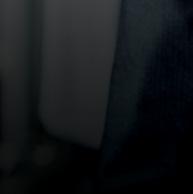
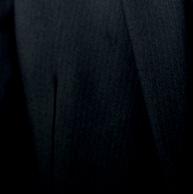








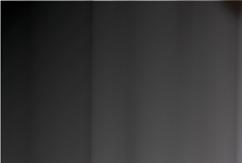
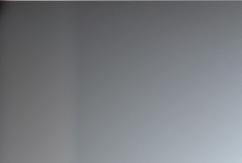

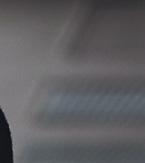
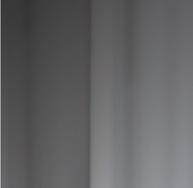




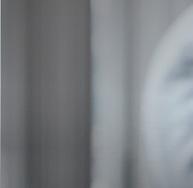



From a thought-provoking keynote and insightful sessions to comedy, the HR Indaba was an impactful conference, bringing together thousands of HR professionals from across the continent.
 BY NOMAHLUBI SONJICA
BY NOMAHLUBI SONJICA
The 2022 HR Indaba, which took place at the Sandton Convention Centre on 18 October 2022, kicked off with a gripping keynote address by then Barloworld group executive: people and transformation Tantaswa Fubu, who unpacked what the role of a post-Covid-19 leader should look like.
In her speech delivered at a packed main stage, Tantaswa shared how Covid-19 had changed organisations, and the type of leadership required to deal with challenges has also changed.
“They require a humble leader. We need to find our humility,” she said. “We need vulnerable leaders, because if you are vulnerable, you are giving permission to the people you lead to be vulnerable too. We need to understand the importance of the role of other stakeholders. We need to take care of the first things first. Let us show the future what is possible. We cannot have leaders who cannot tell stories,” she said.
The HR Indaba was also an opportunity for partners to showcase their products at the colourful stands they had erected. There were also awesome prizes up for grabs, including a trip to Mauritius.
With 40 topical sessions, hosted by some of South Africa’s leading HR professionals, and a wide array of exhibitors, attendees were spoilt for choice – resulting in a few heated debates among colleagues deciding which sessions to attend.
During the Great Resignation session, which was one of the most sought after sessions at the HR Indaba, S’ne Magagula, CHRO at Tiger Brands, Sthembiso Phakathi, Deloitte’s director: human capital practice, and Kutlwano Rawana, chief of people at Rectron, took the audience on a journey of how they retained employees – and some high performers who had left, also returned.
S’ne said, “We’ve become a hunting ground in South Africa for small companies that are looking for talent. Our attrition levels were increasing. We saw it climb more than six percent compared to the previous two and that's when we knew we had a crisis looming.”
She added, “Data is our friend. We did an analysis of why we were losing people, and who we were losing them to. We were losing our skilled employees.”

“We have a big role as HR professionals in terms of leading our leaders to be better connectors to our talent and activists.”
– S’ne Magagula, CHRO Tiger Brands
Some of the reasons people were changing jobs, S’ne said, was that they are looking for flexibility. Most are looking for better opportunities elsewhere. “We started having deeper conversations on why people were leaving and what kind of opportunities they were looking for. We had deep conversations with people about their aspirations. We encourage our leaders to have the right conversation around talent.”
S’ne also shared that their company has been on a culture transformation journey for three years now. “There’s a big focus on creating conditions for people to perform at their best. We have a clear purpose, which is nurturing lives. We do a lot of work understanding what drives people.”
At Tiger Brands, they have responded to people’s feedback in terms of what would make life better for them. “Could we make our products more accessible to our staff? We’ve since developed an online shop for our staff where they can shop and save between 40 to 50 percent. This is a direct response to what people have said.”
Kutlwano revealed that she does not believe the Great Resignation is a bad view after all. “Is it a bad thing if the skill you have developed needs to grow and they have reached the ceiling in your organisa-
tions? People need to grow even if they grow outside the organisation,” she said.

“The crisis is when they leave and you have not built enough succession. We need to focus on the strength of skills we have in the organisation. Organisations need to focus on high performance and developing skills,” Kutlwano said.
Sthembiso noted that their research showed that people who are younger are looking for different things.
“People are motivated by different things to work. We need to reward them. The Gen Zs and millennials are looking for autonomy and interesting work that is going to evolve. Jobs should evolve,” Sthembiso said.
He said at Deloitte, they believe people need to move to spaces where they can thrive. “Workforce mobility is good. Research shows if you can notice people when they disengage, interventions are critical. Our leaders are not trained to pick those patterns. With hybrid work, it is difficult to pick up if a person is disengaged. We need to ask the right questions.” Once

employees are disengaged, it is difficult to re-engage them, Sthembiso pointed out.


He contended that the Great Resignation is a good thing, but when people leave when they are upset, they don’t talk positively about their former employer. “Once they leave when their work is no longer fulfilling, they will say bad things about your company. We want high performers to leave our business so that they are good ambassadors.”
S’ne said she subscribed to the idea of catching people while they still want to shape the DNA of the organisation. “It all stands and folds on leadership. We have a big role as HR professionals in terms of leading our leaders to be better connectors to our talent and activists. You need to act on the feedback you get and be open to changing what needs to be changed. It’s the leaders who are going to change things,” S’ne said.
Renowned South African comedian Joey Rasdien wrapped up the amazing conference by keeping everyone in stitches with his quirky jokes. This was also the time when guests took time to unwind and enjoy a drink.
Workday and Sage were the diamond partners of HR Indaba Live

Elanie Kruger, Group CHRO of Tsebo Solutions and 2020 CHRO Awards nominee, explains how technology and innovation can help when dealing with a geographically dispersed workforce with a large number of deskless employees.
BY RONDA NAIDUQ: Tsebo’s workforce is widely distributed geographically with the majority being deskless employees. How, within this context, have you harnessed innovation and technology from an HR perspective?
A: Tsebo is all about people. Our purpose statement confirms that, as we develop people, to serve people, to uplift society. We commenced with a digitisation strategy a few years back and identified the needs of our employees, clients and the business.
Covid-19 accelerated the need to prioritise our digitisation journey. It was clear that we needed to change the way we do things, and challenge ourselves to work more inno-
vatively and more efficiently. We knew we couldn’t make these changes overnight, and steadily progressed on our journey. We mapped the end-to-end employee lifecycle and identified where the use of technology would enhance the employee and client experience across the group.
Q: What are some of the challenges you faced during this process?
A: People in general embrace new ideas, but are not that open to change itself. Change management is very important, and it takes time to convince people of the benefits of doing things differently and adopting the discipline that comes with making the changes successful.

I also realised that too many changes at once can be overwhelming for the business. As such, timing and user adoption are very important. But, there is always that one manager or team that embraces change and is willing to pilot a new system. That energy and enthusiasm has a way of propelling change where more people want to be part of the journey.
A: Tsebo was certified as a Top Employer for 2023 and digitisation and the use of technology are key criteria for certification.
This accolade is directly related to the benefits which were:
• Our careers platform has grown substantially to over 500,000 candidates in less than five years.
• Our HRIS has been rolled out to all employees who can access leave, personal details and payslips via employee self-service (ESS). Employee time and attendance are fully integrated with our HRIS.
• We have achieved a 98 percent payroll accuracy with an additional payroll query functionality on the ESS Mobi-platform.
• We have a knowledge portal TseboNet.
• Our LMS (Learner Management System) is accessible to all employees with more than 50 percent utilisation and helps us bridge the digital divide by making training modules accessible offline.
• We had a 50 percent participation in our bi-annual employee experience survey that has been digitised and we use technology to conduct culture checks.

• We have created several dashboards assisting us to monitor trends, and empowers us to make more informed business decisions.
A: There were a few, including:
• Don’t try to make too many changes all at once: rather make incremental changes.
• Focus on the projects that will give you the biggest return. You need a success story and build from there.
• Success lies in proper planning prior to any execution.
• Get your change ambassadors to lead and pilot changes. Very soon, everyone wants to share in the success and adopt it.
• Position the changes as business enhancement tools, not HR tools.
• Be mindful of the technological literacy of employees, as it will be different across generations and levels.
Q: There seems to be disparate views within the HR discipline around the value of HR metrics. What are your thoughts on this? If relevant, please provide an example of how you have employed HR metrics to improve employee satisfaction.
A: HR metrics are important figures and information that allow our business to track our employees’ value and measure our initiatives' effectiveness. The data enables Tsebo to see what is working, what needs to be improved, and what to expect from our workforce. This, in turn, empowers businesses to create a well-organised and comprehensive people strategy.
In rolling out our Employee Experience survey, we identified specific sites where our digitised survey enabled us to conduct a follow-up employee pulse survey with associated focus groups.
This allowed employees to raise their concerns, resulting in a positive outcome and improved employee engagement scores. We could also use the results of our survey to compare it with our Customer Satisfaction Scores, enabling us to address areas of concern and to benchmark best-performing sites and learn from the results.
Q: What advice can you offer fellow practitioners who are facing challenges with employee wellbeing amidst a challenging socio-economic environment?
A: Employee wellbeing has many facets. Traditionally our focus has been on physical, emotional and financial wellness. Through our engagement with our employees, we have realised the importance of a Tsebo Listening Strategy and providing various avenues for employees to share and engage in a safe work environment. Not all employees want to share their personal issues with their employer, but we need to create an environment where we practise compassion and understanding.
Most employee wellbeing programmes have less than 10 percent uptake. Often it is not about the offering but about creating that safe space to share and to enable employees through self-awareness and upskilling to manage and take ownership of their wellbeing.
We also include intellectual wellbeing in our offering. Intellectual wellness means striving for good mental health, continued intellectual growth, and creativity in life. We believe that given our emphasis on employee development and how we leverage talent, this is a key area where we can empower employees.
Q: What do you believe are some of the key focus areas for HR this year?
A: There are quite a few focus areas we have identified. These include:
• ESG and sustainability;
• Transformation and leadership;
• Continuing our digitisation journey to create a workplace that works for the employee and making the way we do things easier;
• Onboarding: Using systems and enhanced processes to improve the quality and retention of new employees;
• Employee Experience: Rolling out our 2023 EE Survey across the continent;
• Continuous Learning and Development; and
• Wellness.
Q: What are some of your personal goals for the year
A: I choose to be happy. I love the life I live and want to make time for myself, those I care about deeply and be present. I want to make time to appreciate people and be compassionate.
With organisations facing compounding crises due to the pandemic and the conflict between Russia and Ukraine, what should business executives be prepared for in 2023, given the rapidly changing business landscape?
BY ZWILE NKOSI, ASSOCIATE: CAREER, MERCERust as the world was emerging from two years of the COVID-19 global pandemic, characterised by enforced new ways of working and accelerated employee wellbeing programmes, organisations had to navigate an inflationary environment – high inflation, rising cost of living and persistent interest hikes in 2022.
According to the 2023 Global Risks Report released by Marsh McLennan in partnership with Zurich Insurance Group and the World Economic Forum (WEF), over 13,000 voices from 124 countries around the world highlighted the cost of living, economic downturn, geoeconomic warfare, climate action hiatus and societal polarisation as the most pressing concerns for the next two years.
At the same time, business leaders acknowledge that the energy supply crisis, cost of living, rising inflation, and food supply continue to present immediate risks, which are felt globally.
Even though the continent is affected by the overall global context, African business leaders’ views vary slightly. Their biggest concerns are the cost of living crisis, debt crisis, rapid and/or sustained inflation, employment and livelihood crises, and a lack of widespread digital services and digital inequality.
An even closer look at two of Africa’s leading economies, Nigeria and South Africa, business risks vary notably, with South Africa more exposed to societal
risks than Nigeria. Nigeria, on the other hand, is facing more economic threats this year.
According to Mercer’s 2023 Global Talent Trends Pulse survey, African HR leaders perceive enabling new ways of working (remote, hybrid, gig) as one of the most critical aspects for success in 2023 to energise employee work experience and secure talent.
However, only 26 percent of organisations are increasing transparency on which jobs suit different work/ flex arrangements and only 34 percent are setting new work guidelines to improve collaboration effectiveness.
As organisations transition to new work models, a conducive environment is critical in shifting mindsets. Therefore, it is encouraging that there is a focus on company culture development as organisations adapt to new ways of working, with 77 percent investing in building a culture where employees feel comfortable bringing their authentic selves to work.
The study also revealed that impacting total wellbeing outcomes is another of five critical areas for success in 2023, with 47 percent of organisations redesigning work with wellbeing in mind, e.g., no-meeting days, realistic workloads, a culture of trust, a positive work environment, etc.
Diversity, equity and inclusion (DE&I) is another area highlighted as most critical for success, with 57 percent of organisations saying they take action to ensure their workforce profile reflects the market(s) in which they operate. Organisations (45 percent)
Societal
Source: Marsh & McLennan 2023 Global Risks Report
Terrorist attacks
Debt crisis
Cost of living
Severe commodity supply crises
Employment and livelihood crises
Rapid and/or sustained inflation
Geopolitical Economic Environmental
Source: Marsh & McLennan 2023 Global Risks Report
that are serious about DE&I are training managers on how to build inclusive and equitable team arrangements.
However, despite diverse workforces, only 37 percent of organisations plan to expand their benefits to be more inclusive of all workforce segments. Completing the list of five, organisations highlighted enabling a skills-based organisation as most critical for success in 2023.
• Embracing a skills-based transformational people strategy: With the cost of living and economic downturn top of mind for business executives, it is unsurprising that HR leaders are focusing on HR priorities that add business value
State collapse
Debt crisis
Cost of living
Collapse or lack of social services and public infrastructure
Employment and livelihood crises
– balancing spend while securing talent.
Mercer’s 2023 Global Talent Trends Pulse survey revealed that African HR leaders are prioritising skills, improving strategic workforce planning, investing in up/reskilling and designing talent processes around skills.

• Culture of care: Employee wellbeing remains a top priority. A caring culture is emerging, with 98 percent of organisations focusing on how their benefits offerings can better support employee attraction, retention and engagement.
• Rethinking compensation and rewards: The inflationary environment has organisations rethinking their compensation and rewards programmes to stay competitive in a tight talent market while balancing spend and securing talent. HR leaders shared some of the actions taken.
In a rapidly changing environment, forward-thinking organisations are redefining how they interact with their workforce to build resilient and agile organisations that can navigate current challenges while preparing for the future.
Organisations focusing on HR priorities that enhance employee value and, in turn, add business value will secure a brighter 2023 and beyond for


their employees, organisations, communities and relevant stakeholders.
For more information: Visit www.mercer-africa.com Or email: mercerafrica@mercer.com follow Mercer Africa on LinkedIn
“77 percent of companies are investing in building a culture where employees feel comfortable bringing their authentic selves to work.”
Some companies adopt a one-size-fitsall HR strategy. But you don’t have to.

If you’re looking to ensure your people strategy, compensation and benefits, and talent management programmes fit your organisation’s needs now and in the future, we can help. We listen to understand what works best for you. And use our insights for the journey ahead.
At Mercer, we’re redefining the world of work, reshaping retirement and investment outcomes, and unlocking real health and well-being. For 75 years, we’ve been providing trusted advice and solutions to build healthier and more sustainable futures for our clients, colleagues and communities.
Welcome to brighter. www.mercer-africa.com
The benefit, dynamism and diversity of thought that encompasses a multi-generational workforce has resulted in more organisations embracing the concept. Many HR departments are therefore making a concerted effort to create age diverse teams and this is naturally fostering cross-generational mentorship and collaboration – resulting in reverse mentorship programmes.

Gontse Madumo, talent acquisition lead for Sub Saharan Africa at Mondelez International, said that there are multiple benefits to reverse mentorship, however the objectives of each organisation will be different.
She explained, “The determination of those objectives should be based on a pain point such as retention of Millennials and Gen Zs. Where the objective is clearly outlined, a programme can be designed that addresses it.”
There is often a divide where the older generations spend more time with each other and the younger generations also keep to themselves, so reverse mentorship serves as a suitable antidote for this.
Gontse added, “It allows for the unique strengths of each generation to shine through and have a positive impact on organisational culture, building a cohesive and collaborative work environment.”
“While more senior employees bring knowledge, skills and often industry experience; younger employees bring a modern perspective. Used well this can be a fountain of creativity and innovation which all organisations require in a competitive and ever-evolving environment,” she adds.
Prioritising building age-diverse teams is a good avenue for fostering knowledge transfer, collaboration and diversity.
Advaita Naidoo, Africa MD at Jack Hammer Global, said, “I think it is diversity in the truest sense of the word. It exposes you to different viewpoints, ways of thinking and skills.”
Recent graduates also have technical skills that set them apart. “They have updated theoretical knowledge and it comes from a different environment. They come with a different way of doing things in general which could be a competitive advantage. It fosters a process of learning and self-improvement while placing a lot of value on learning from within,” she said.
Reverse mentorship allows innovation to come from everywhere. “It’s not just on the C-Suite to come up with new ideas and strategies when you can learn from people lower down in the organisation,” she added.
As the digital era and ever-evolving workplace trends continue to take hold, the older generation is increasingly collaborating with the younger generation – fostering multi-layered mentorship in the workplace.
– Gontse Madumo, talent acquisition lead: Sub Saharan Africa, Mondelez International

“It [reverse mentorship] allows for the unique strengths of each generation to shine through and have a positive impact on organisational culture, building a cohesive and collaborative work environment.”
However, Advaita cautions against limiting cross generational mentorship to informal and organic interactions and suggests implementing measurable systems, such as a commitment to meet at set times, instead.

She believes it still needs to be fleshed out; allowing for more clarity on what it should be, what it is trying to achieve and how success should be measured.

“I haven’t seen it happen in a particularly formal way, it’s happening but not systematically,” Advaita said.
Informality can also put a lot of pressure on junior employees. “They don’t have complete sight of the business and the end-to-end running of it. They will want to say something that’s earth-shattering or are afraid of saying the wrong thing. It can be quite a pressure when you haven’t grown into it or climbed the ladder. These are the things that can happen if things aren’t done sensitively and with intention,” she explained.
Advaita suggested creating a structure that outlines discussion points and bringing the junior person into broader conversations and exposing them to a
broader range of people.
“This will work to their advantage and they won’t feel like they are being used for their information gathering and offerings. Put a cadence in process that says mentors and mentees should meet once a month or once every two months – and nothing should override that time,” she said.
Foster a situation that allows for an easy exit to minimise pressure. “If the relationship is not working, the mentor in this instance should have comfort in being able to step out and that can be really tricky when there is a power imbalance. There should be an HR person they could speak to once it’s more formalised,” she said.
Gontse added, “Measuring engagement, a sense of belonging, feelings around ageism, productivity and digital proficiency are some ways in which reverse mentoring can be seen as valuable. That said, organisations need to begin with an end in mind. They need to be clear on what they hope to achieve through the process and clear on expectations.”
This will also encourage more organic exchanges between different generations as all parties benefit.
There could initially be some resistance from older leaders to collaborate with younger employees, so it’s worth noting that there are a number of things that millennial leaders can teach their senior counterparts.
Wayne Meisel, business manager at SAP Africa, said, “The classic picture of the CEO as a grey, suit-and-tie wearing executive has been replaced by a dynamic sneakers-and-jeans sporting young leader with a more casual approach to office attire,” he says.
“These Suits most definitely have the experience and the business maturity on their side, however, the so-called Sneakers – the younger, less traditional, more purpose-driven and digitally-native – are teaching the older Suits new ways of work and rewriting classic notions of success in the process,” he added. Wayne had some advice for marrying experience and business maturity (the Suits) with the more purpose driven and digitally native (the Sneakers).
Less bullet points, more stories
“Remember that great slide the CEO showed that perfectly summed up the company strategy in a few bullet points? No one does. Modern leaders know that to inspire and motivate their teams, they need to communicate their strategy in a memorable way with a strong focus on storytelling,” said Wayne.
Create compelling and inspirational stories that can keep a team motivated, “Use fun elements to make it more memorable. Younger workers expect more than just working for a salary: they want to have fun doing it too,” he explained.
Make purpose your power
Purpose has become a lot more of a driver for an employee’s personal and professional buy-in.
Leaders therefore need to focus on purpose to inspire younger leaders. “They know that speaking about buying a new tool is not exciting or motivating: instead, they speak about the potential of how that tool can change the world. Companies with a clear purpose also find it easier to attract talented candidates who align with that purpose,” he explained.
Vary viewpoints
Successful modern leaders should prioritise building diverse teams and cultivating a culture that celebrates diversity. “Younger workers understand the value of listening to, considering and taking on board a diversity of views from a broad spectrum of different personality types and backgrounds,” he said.

Be relatable
Being accessible and engaging goes a long way. “Younger workers are shaping the companies of tomorrow by exploring new ideas and trying new solutions to old and emerging challenges. To inspire this new generation of professionals shaping the business world, leaders need to use language and examples that are relatable,” Wayne said.
Companies can also close the generation gap by getting Gen Z or Millennial input at board meetings or sessions at an executive level and communicate leadership decisions in a relatable way.
Organisations that build diverse teams foster growth opportunities for Suits and Sneakers alike
“There is no doubt that this younger generation of purposeful and passionate leaders brings value to the workplace. Do they have all the answers? Absolutely not. Some of the most effective business strategies are still driven by the Suits who possess the gift of experience,” he said.
“The classic picture of the CEO as a grey, suit-and-tie wearing executive has been replaced by a dynamic sneakers-and-jeans sporting young leader with a more casual approach to office attire.”
– Wayne Meisel, business manager at SAP Africa
With an initial educational background in law and a solid foundation in labour relations, Juba Mashaba explains why he believes that effective leaders are those who are principled, treat stakeholders fairly but do not try to please everyone.
 BY NOMAHLUBI SONJICA
BY NOMAHLUBI SONJICA

Juba Mashaba, CHRO at Cell C, considers his role as leading people performance and strategy and does not see it as being limited to the execution of the mundane HR policies and processes.
“It’s critical that HR professionals assume a leading role in collaborating at a strategic level and help develop and execute a clear strategy for success for the business,” he says.
Although he has decades of experience in the HR space, he initially studied law and then later completed an executive leadership programme in human resources at Michigan Business School, where he counts the renowned Dave Ulrich as one of his lecturers.
“I started my corporate career as a graduate trainee at Eskom’s legal department. The graduate programme entailed exposure to various parts of the business which subsequently led me to the labour relations department,” he says.
“This was at a time when there was a build-up to the democratic dispensation in 1994, when the political and labour environment in the country was highly charged and volatile. This situation called for calm and measured leadership to defuse tensions and find an amicable middle ground between parties that were in polar positions in terms of both labour relations and political direction,” Juba recalls.
Key to this was facilitating opportunities for the meeting of minds between the company’s manage-
ment and the union leadership, along with making recommendations that would enable concessions on both sides.
This played a huge role in defusing tensions and beginning the process towards constructive dialogue. These engagements ultimately resulted in a collective agreement outlining the rules of engagement from that point onwards.
Four years later, he was appointed the chief industrial relations officer of Eskom and two years later took on the role of group human resources manager at the power utility.
Juba was subsequently head-hunted by PepsiCo and appointed as HR director for their then recently acquired Simba snacks business.
He credits PepsiCo for having offered him the most impactful learning and development opportunities and experiences in his career to date.
During his corporate journey, which subsequently took him to Arcelor-Mittal, Aveng and now Cell C, Juba has learnt that effective leaders are those who are principled and treat stakeholders fairly but do not try to please everyone.
They also do not shy away from taking hard decisions when the situation requires, carrying them through and doing the right thing, while continuously finding a balance between competing stakeholder interests.
At Arcelor-Mittal, which he joined after leaving PepsiCo, Juba was confronted by a clash of cultures between the Iscor culture and new Arcelor-Mittal culture, which required significant change management and engagement to develop a new common purpose high-performance culture.
Now at Cell C as chief human resources officer, Juba has again been tackling a challenging business turnaround and transition where his many years of experience in similarly complex situations have come into play.
He has led the right-sizing and repositioning of Cell C, which has resulted in a 53 percent headcount reduction, despite a challenging labour relations environment, through robust stakeholder engagement. The labour relations environment has since stabilised and there has been no further labour
“I make sure I know where the risks and opportunities lie, where the barriers and levers are, to understand the implications, before I decide and act."
unrest over the past two and a half years as the organisation has refocused on stabilisation and growth.

This has entailed the implementation of a new fit-for-purpose operating model and organisation structure, the elimination of functional role clutter and duplication, and delayering the organisation. In addition, he has led the review of all roles including job descriptions to ensure that they are aligned to outputs relevant to the strategy.
Organisation-wide assessments, to determine role fit for all incumbents and to inform talent deployment and development priorities, have been conducted.
Another key part of this turnaround has been the resetting of performance and behavioural standards to begin building towards a sustainable high-performance culture. The commencement of the shift in culture has been confirmed by the latest employee engagement survey results.
Juba describes himself as a decisive leader who does
sufficient research to understand any issue he is dealing with.
“I make sure I know where the risks and opportunities lie, where the barriers and levers are, to understand the implications, before I decide and act,” he says.
Juba believes in transparent, decisive leadership that employs a high level of emotional intelligence.
“I thrive on high performance and believe that everybody has the ability to deliver at their very best if given clear direction, support and held accountable,” he adds.
He is also a big advocate of maintaining good health and wellness, so much so that he has a diet and fitness regimen that he strictly follows.
His message to all executives is: “Eat healthily, drink enough clean water, (and the occasional whiskey and red wine in moderation), exercise regularly, get enough sleep, find time for yourself, and do regular health check-ups. You must listen to your body because it gives you signals,” he advises.
“I thrive on high performance and believe that everybody has the ability to deliver at their very best if given clear direction, support and held accountable."
CHRO South Africa dinners are fast becoming renowned for great company, contemporary conversation, frequent laughter and luscious food. It is proving to be a unique platform for leading HR professionals to get together and discuss challenges and solutions facing the fraternity in the fast-changing world of work. Former managing editor Nomahlubi Sonjica (and current CIO South Africa community manager) attended two dinners and shares some of the memorable moments.

Some of the country’s top HR executives gathered for dinner at the spectacular Saxon Hotel in Sandhurst, Johannesburg, and shared how the Covid-19 pandemic has affected the way people work and how the role of HR has evolved over the past two years.
The dinner took place in September 2022 and was hosted by CHRO South Africa in partnership with Workday.
The mood in the private dining room where the dinner was held was upbeat as guests had the opportunity to mingle with their counterparts over drinks before they were seated.
CHRO South Africa’s managing editor, Joël Roerig, asked each guest to introduce themselves and tell others one thing people do not know about them. This was a moment of oohs and aahs as guests made their revelations.


From then, the conversation flowed and it was interesting to hear how HR executives shared similar and different views about how things have changed in the workplace and how they should be post-Covid-19.
Sharing the lessons they learnt over the past two and a half years, CHROs agreed that they had become agile and that since the pandemic, things had changed and continued to change everyday.
“The burnout kicked in and people started losing their loved ones. We had to support them, as we were dealing with real pain and loss,” one CHRO shared.
They said everyone in the workplace looked to HR for solutions.
“It [Covid-19] taught me a lot about agility. I now make decisions on the fly,” the CHRO said. “The sense of agility was a big lesson.”
Another CHRO told of how the pandemic took their company through a digital journey as they developed an application to connect with and reach staff.
Collaboration has also become part of the development brought about by the pandemic. One HR leader said during the period, hierarchy became irrelevant. “Not one person could solve things alone,” they said.
The past two years, one HR executive said, had tested the concept of being a people-centric company. “Sending people home with laptops was not an issue, but people started asking for data at home. The value of diversity and inclusion was tested for us,” shared another CHRO.
According to one executive, Covid-19 has helped a great deal in terms of how staff have become engaged and how they speak openly and honestly
about issues that affect them, including their wellbeing. “We are seeing a lot of willingness to discuss it. We are seeing engagement and Covid has brought in that softness in terms of how we handle people.”
The executives agreed Covid-19 brought the best and worst of times. When it came to the hybrid work model, there were very different views, with some arguing that working from the office brings a sense of “collaboration”. Others felt it was not necessary to ask people to go back to the office because they still conduct virtual meetings at the office.
“If people are at the office, it has to be purposeful,” one CHRO said.
“It is great, once in a while. We need to have a digital-first mentality,” another said.
Another CHRO said there was no need for companies to run an “adult daycare centre” by expecting people at the office, because employees can self manage. “It looks like everyone has nostalgia for the old because they want people back at the office,” said one executive.
“Discussions with my colleagues don’t happen on
Zoom. They happen at the office. We have to ask ourselves what impact working from home has had on the business,” said one CHRO, who added that he and his team have been able to make better decisions at the office than at home.
The evening ended with CHROs being thankful for the platform CHRO South Africa offers HR leaders. “This platform has been phenomenal. It’s always great to be able to share ideas,” said one leader.
• Beverley Bennett, HR Executive at Curro Holdings
• Latisha Govinder, HR Executive Kia South Africa
• Tswelo Kodisang, Chief People Officer, First Rand Group
• Dewan Hamman, People Executive: Systems & Solutions, Smollan
• S’ne Magagula, CHRO, Tiger Brands
• Nametsegang Maruping, HR director, Webber Wentzel
• Tumi Matseka, Chief of People Management and Learning, Transnet
• Thembi Mazibuko, Chief People Officer, Pick n Pay


• Siya Mnyanda, Senior Enterprise Account Executive, Workday
• Masenyane Molefe, Group Executive: Human Resources, PPS
• Kiveshen Moodley, Country Managing Director, Workday
• Michele Seroke, CHRO, Motus
Some of the top HR leaders gathered around a dinner table at the magnificent Saxon Hotel in Sandhurst, Johannesburg on 22 September to share insights into how they are looking after themselves and other executives at their respective workplaces.
The dinner, hosted by CHRO South Africa in partnership with HealthImpact, was an intimate affair that started off with welcome drinks and was followed by a selection of delectable dishes.

CHRO South Africa’s community manager Sungula Nkabinde welcomed the guests, and to make them feel comfortable around one another, asked each of them to share a bit of interesting information about themselves.
Themed “Putting your own oxygen mask on first”, the event gave rise to a conversation around how the HR executives were taking care of themselves in high-pressure situations.
One HR leader shared that they neglected their own wellbeing to the point where they had to be told by their CEO that they needed to take time off. “I’m
probably the worst to put on my oxygen mask first. I was reminded by my CEO to take time off,” the executive said.
Another shared that a lot of corporates do not prioritise the wellbeing of executives. “Nobody wants to be seen to be weak, which is a wrong idea to have.” He emphasised the important role HR leaders need to play to take care of the executive, including themselves.
The guests agreed that while it is easy for them to tell everybody else at work to take a break, they themselves do not practice what they preach.
“As leaders we talk the talk, but how many of us live what they say? We say the right things but when it comes to modelling, we don’t do anything,” said one CHRO.
“There could be more we could do to not allow executives to slip into [depression]. It’s not an easy space to navigate, but we need to be agile and adjust as we go along,” another added.
Another executive shared how Covid-19 had changed the game in that leaders have discovered that it is okay to be human too.

For another executive, the past two years have presented an opportunity for executives to form alliances and offer support to each other. The period, he said, also allowed people to be open about their mental health issues.

One CHRO said he has a routine to keep their wellbeing in check. “I’ve got a routine and I refuse to change it. I’d rather not take a role if it will not
allow me to stick to my routine.” The HR leader said he makes sure he gets enough hours of sleep every day. “When I wake up I do a 45-minute workout. I try very hard to eat healthy.”
He said when he feels he is fatigued, he takes time off. “You are useful when you are well. I have seen instances where high-performing executives burn out because they don’t look after themselves.”
The evening ended with the guests making connections and promising to reach out to each other to take the conversation forward.
Those in attendance were:
Tamara Bell: Executive: Sales and Marketing, HealthImpact
Edwin Hlatshwayo: HR Director, Glencore
Juba Mashaba: Chief Human Resources Officer, Cell C

Sphiwe Mayinga: Chief People Officer, Empact Group
Julia Modise: HR Director, BMW SA
Jedd Myers, Chief Executive Officer HealthImpact

Athol Swanepoel: HR Director, Nestlé East & Southern Africa
Sharon Taylor: Chief People and Culture Officer, Standard Bank

“Nobody wants to be seen to be weak, which is a wrong idea to have.”Edwin Hlatshwayo Athol Swanepoel
HR guru Michele Seroke, who is the chief people officer at Motus, has been deliberate about her career progress and strongly believes in leaving a legacy through the development of next-generation leaders.
BY NOMAHLUBI SONJICAHR guru Michele Seroke has achieved what she had set out to accomplish in her HR career but is still passionate about her job and industry. She is presently the chief people officer of Motus, South Africa's leading automotive group, which employs more than 17,000 people globally.
Although Michele has held several strategic senior management and executive positions in HR, both locally and internationally, she initially started her career at Eskom in procurement as a buyer.
Owing to the need to be more commercial and more attractive to corporates, Michele went into procurement and logistics following her graduation from the University of Cape Town with a social sciences degree.
After much growth in procurement, the 2022 CHRO Awards nominee recalls the persistent calling toward people management.
She said, “Buying was exciting and critical to establishing Eskom as the lowest cost producer of electricity and one of the best-run utilities in the world in the 90s, but it was not people.”
Michele strongly believes that engaged and empowered people are the lifeblood of any organisation. She then
asked her bosses to be moved into HR, and she has not looked back since.
Michele has deliberately plotted her career, enjoyed success in varied industries spanning the public and private sectors, and worked internationally.
“Consequently, I have been involved in diverse projects such as driving transformation at an early age at Eskom, facilitating culture transformation initiatives at ArcelorMittal, driving systems implementations, developing global people practices to being a member of the Motus Group exco,” she added.
Michele has been with Motus for six years, during which she and her team have ably guided the group through not just the listing of the organisation on the JSE but through the impact of the Covid-19 pandemic and what it meant for people practices and the company's value proposition.
She said, “Establishing a new age business-informed HR function when Motus separated from Imperial has been one of the highlights of my career.”
According to Michele, an HR leader should have a solid understanding of their business, industry, and the imperatives driving the organisation and translate them into a people strategy that enables the business to create value.
Michele is passionate about the upliftment of women within business and society.

“I’m all about work, and I wake up excited about what is next and how we can take the business forward, but I also need the recharge time at home.”
“I am fortunate that I come from a powerful matriarchal environment, where women have always pushed and been at the forefront, hence my passion for gender issues and involvement in related projects,” she said.
Michele also advocates for leaving a legacy through the development of next-generation leaders.
Michele points out that the HR function's perennial challenge has always been how to remain strategically relevant and transform itself to gain the proverbial “seat at the table” as a valued strategic business partner. She recognises that the Covid-19 pandemic has been a game-changer in this regard and helped elevate the contributions of HR. During the pandemic, the function was front and centre in helping organisations navigate this once-in-a-generation crisis. HR was called upon to preserve the health and wellbeing of employees and enable flexible work arrangements to drive productivity and preserve company profitability. HR was central to answering questions in these critical areas, like, how do you mobilise remote working? How do you facilitate the performance and productivity of people working in remote environments? How do we ensure employee connectedness?
Michele believes that the function should leverage the gains achieved through the pandemic and believes digital transformation should be the next frontier HR conquers.
Digital transformation is all-encompassing, impacts every aspect of an individual business, and represents the most significant organisational development and design challenge for any business.
Michele believes that although technology is a crucial driver of digital transformation, people remain a critical component of the success of an organisation’s digital transformation strategy. She believes that in the end, organisations achieve results by how they get things done and how they treat their people.
Given that it is people who decide how technology is used and since people fall within the purview of the HR function, Michele believes that digital transformation presents the function with an opportunity to deliver more strategic business outcomes.
She is concerned that if the function fails to get involved in this area of the business by ensuring
organisations have digitally astute employees and enable cultures of digital adaptation, it will render itself obsolete, forcing it to remain under pressure to defend itself and its financial impact on the business. She therefore believes HR should educate itself on what digital transformation actually means and improve its readiness to take on the role of supporting digitally transforming organisations.
Many people would be surprised that this outgoing and self-proclaimed workaholic is actually an introvert who draws her strength and is happiest at home. “I’m all about work, and I wake up excited about what is next and how we can take the business forward, but I also need the recharge time at home,” she admitted.
Michele enjoys everything about home renovations and says she will likely carry this interest into the next stage of her career post-retirement. “I bingewatch house renovation programmes and always imagine new projects and redoing houses,” she says. She is also interested in subsistence farming.
“We have this vegetable patch in our home village. It was thriving when my dad was alive, and he could sell produce to the community. I would like to get it going again and make it the village and community centre again,” she said.
She added, “I spend much time with my extended family and love being with them when I am not at work. I enjoy entertaining and just that vibe of creating concurrence and warmth.
“Michele is also an avid traveller and travels with friends every two or three years. “Our last pre-Covid trip was a Mediterranean cruise starting in Venice through to Croatia, Greece and back in Italy,” she says.
For her, it is all about culture and savouring the experience when travelling. “I’m not big into shopping abroad. I am the typical tourist and the one who is on the tour bus and just drinking in the ambience, architecture, history, and museums. I also like to experience the local cuisine as I’m a keen cook,” she said.
And the next stop? “Cuba and Ghana are the following countries on my to-do list. I would also like to explore going on an excursion to all the international museums,” she said.

“I am fortunate that I come from a powerful matriarchal environment, where women have always pushed and been at the forefront, hence my passion for gender issues and involvement in related projects.”
One of the C-Suite HR executives I am currently coaching is running on empty, and finding it difficult to sleep. Every time I see her, her shoulders are a little tighter and her jaw a little more clenched – she openly admits to feeling exhausted.
Our coaching sessions are focused on how she can support and lead her team effectively through yet another restructure. However, I know how important it is for her to consider which of her habits and practices are limiting her capacity to be present, energised and engaged.
Every middle, senior and executive leader who I have met or coached wants to contribute meaningfully at work. They want to show up and support their teams to grow and deliver quality work.
And yet, I am seeing unprecedented levels of overwhelm, stress and burnout with these leaders. And we’re only a few months into the year!
A significant reason for this is the consequence of the always on culture that has emerged over the past few years.
As guardians of the people, with high levels of responsibility for the wellbeing of employees, HR professionals may feel even more obliged to be available whenever people need them.
The reality is that working on a laptop in bed, being available to answer emails, Whatsapp and Slack messages at random times of the night and over
weekends does not bode well for energy, vitality and good quality sleep.
The always on culture seriously undermines both wellbeing and productivity.
While I encounter many examples of committed leaders who are struggling to find a way to disconnect, I am also engaging with those who are successfully implementing strategies and boundaries for skilful disconnection.
This, ironically, facilitates the opportunity for deeper connection and reconnection. Connection to themselves, and more meaningful connection, support and presence for the people they lead.
Following are the top practices that I have come across for senior leaders to give themselves permission to protect their own mental health first before helping others.
Build a culture in which considerate communication is the default and where expecting an immediate response after hours is the exception – not the rule. Have conversations with the team where clear communication expectations are discussed and agreed. Agree on operating principles that shape team members’ interactions and alleviate the pressure to check emails during dinner or frantically type up responses to questions that could wait until morning.
In the midst of a mental health crisis, combined with what is fast becoming an always-on culture, it is critical that HR leaders give themselves permission to disconnect – and recharge.
Include a common definition on what constitutes an emergency. We are in the habit of thinking that all problems are emergencies. They are not.
The key word here is permission. This may mean you need to review your beliefs and assumptions. Giving yourself permission to disconnect is not lazy or irresponsible, it is an act of service to yourself and the people that you love and lead.
Productivity and performance is directly linked to the quality of your focus and energy, which is directly linked to your ability and choice to disconnect, recover and rest.
Intentionally give as much attention to your time off as you do to your time on.
Be intentional about when and how you will connect and disconnect. Have a clear agreement with yourself about when you will close your devices and switch off at the end of the day. If you choose to work in the evening or over the weekend, be clear and committed about the start and finish time.
Consider a routine tech detox too. Specific times where you are totally disconnected from all forms of technology. Once a week for a few hours or a day can be a game changer. Try it, you may even begin to enjoy it!
Many of the leaders I coach have not considered the difference between resting and recharging. They are not the same thing.
Resting typically refers to taking a break from physi-
cal or mental activity to relax. It can involve sleeping, taking a nap or simply lying down to rest. It is important because it allows the body and mind to recover from stress and fatigue.
Recharging refers to activities that help restore energy and vitality. This could mean spending time in nature, engaging in learning something that interests you, engaging in a hobby or something creative or even practising mindful breathing and meditation.
You need to prioritise both in order to be at your best. Often HR professionals in particular are focused on caring for and supporting others. So, I encourage you to regularly disconnect with the external world and connect with your internal world – there’s a lot of wisdom waiting there.
Trish is a Professional Certified Integral Coach (PCC) with the International Coach Federation and has 10 years of corporate coaching experience at mid and senior leadership level. She has been an independent skills development facilitator for the past 18 years.

The CHRO South Africa Humane Capital Summit gave HR leaders an opportunity to understand the benefits of unlearning, while providing a unique peer-to-peer executive platform for brainstorming the most pressing topics on the people agenda.
 BY CAYLYNNE FOURIE
BY CAYLYNNE FOURIE
Leading HR professionals discussed what changes need to happen for businesses to become more compassionate.
Delivering the keynote address for the thought-provoking evening, on 23 February 2023 at the Killarney Country Club, renowned unlearner and the summit’s keynote speaker Graeme Codrington challenged HR leaders to self-reflect.
“Look at who you are and what you bring to the future of work,” he said.
He took the attendees through three thought-provoking stories, which proved the reasons that HR leaders need to rethink and relearn.
Graeme further encouraged attendees to break down historical practices and to take the lead in guiding people into the wonderful future that is emerging.
“If we don’t, we will have wasted the last three years,” he said.
Graeme was followed by a panel discussion, featuring DSM Advisory MD Dolores Mashishi, Blue Sky CPO Themba Chakela, and Great Well founding CEO Tantaswa Fubu.
“We know that the role of the CHRO is impacted by global macro-economic factors,” Dolores said, explaining that in order to navigate these changes, the attendees in the room have to become T-type leaders, instead of V-type leaders.”
“The V-type is when you are an expert in a certain field of HR. The T-type is when you are an expert in all the fields of HR. Organisations are looking for T-type leaders, who can integrate all the areas of the role at an expert level,” she added.
Dolores encouraged the attendees to make sure they keep on growing and developing themselves, so that they are ready to transition when the world calls for change.
“If we don’t start transforming, the passive aggressive movement in the workforce is going to cost us talent. And without talent, we can’t grow the economy again.”

– Vinolia Singh, Adcorp CPO
Tantaswa agreed, and noted, “The times we are in now call for humane leaders. It calls for a rethink and a transition away from being transactional leaders, to being compassionate leaders.”

She explained that compassionate leadership is understanding where there is pain and doing as much as you can so that people don’t have to go through it. “If you change the culture and leadership fundamentally to being compassionate, you halve what goes into your whistleblowing line.”
However, it’s not easy to mould the culture of an organisation, especially during times of uncertainty.
“The best way to stuff up culture is to tolerate the behaviours that are counter-cultural and counter-people. You need to address them,” Themba added.
Dolores shared this point of view. “We need to hold people accountable. But it’s easier said than done, because of power dynamics. When you are designing the values of an organisation, you also need to highlight the behaviours we expect, as well as the behaviours that are unacceptable. This empowers
people to stand up and hold everyone accountable, even their leaders. And that’s how the momentum of culture shifts and builds,” she said.
Tantaswa added that, using dolphins, behavioural scientists have proven over the decades that, when you give someone recognition for good behaviour, the behaviour is reinforced and they keep on delivering great things.
Next up on the agenda was a “boardroom brainstorm”, during which all the attendees were split into groups of five and were asked to discuss some of the problems CHROs are currently facing, and to come up with practical solutions for each.
When asked how they tackled managing people in top senior management positions who no longer believe that they have to develop, one of the executives stated that top senior management need to be held accountable. “Leadership accountability is key. With great accountability comes responsibility. As senior management, they are responsible for efficiency in the company. We cannot be rescuers any

longer: push it back into their court because they will have to answer for it."
Another attendee suggested that honesty and transparency were viable solutions. “In my instance, I had to tell an executive that at some point he/she will become irrelevant in the organisation and that is a reality. Roles are always transforming and so should the person responsible for that role.”
When the challenge of retaining talent arose, most attendees agreed that better structured exit interviews were needed. "There is definitely a trust deficit when it comes to employee exit interviews. In our business we had no exit interviews and that had to change. We first found someone who the entire company trusts who is outside of the HR department to conduct the interviews. As such, people were more relaxed and were able to be trusting and honest. Furthermore, we also asked managers to give report backs on one stay interview conducted per month,” an attendee said. This, said the HR director, enabled the company to gather data on employee happiness and challenges and in so doing, gives them the opportunity to circumvent potential resignations.
The final part of the evening consisted of another panel discussion investigating the motivations behind HR leaders’ passion for their roles, especially in a post-Covid-19 world. The panel included Adcorp CPO Vinolia Singh, Rand Refinery executive head of HR Unathi Sihlahla and Empact Group CPO Sphiwe Mayinga.
“Our priority this year and going forward will be on wellness and wellbeing,” Unathi said. “We’ve defined wellness dimensions and are in the process of developing programmes of work to support those dimensions.”

The pandemic was an interesting period for Empact, Sphiwe explained. “Empact is in the business of improving the quality of lives of people through our food catering and cleaning services. One of the industries we operate in is in the hospitals, so we had the privilege and burden of working throughout Covid-19.”
She explained that Empact realised firsthand the impact of the pandemic. “It has wreaked havoc on organisations, people and society, and has left eco-
nomic and social depletion in terms of who we are as humanity.”
Naturally, the impact working on the frontlines had on their employees was profound. “Getting our staff engaged during that period and keeping them focused wasn’t easy, and it was further complicated by the fact that employees were working from our clients’ premises. This meant we had to lead from a distance. We had to find a way to engage with them in a meaningful way,” Sphiwe said.
At Adcorp, being in touch with employee trends and wellbeing is a top priority as a workforce solution. “After the pandemic, everyone was reflecting on their lives and rethinking the things that mattered to them. Now there’s a passive aggressive move from the workforce asking for more flexibility,” Vinolia said.
Vinolia decided to rethink her HR function as well, realising that they have more value to add than simply being police officers, firefighters and secu-
rity guards. “With the power of Workday and the data we have, I gave up this exhausting role we had been playing during Covid-19, and said it was time to change the function.”
The function embraced a more flexible working solution for its employees, giving them the freedom and accountability they needed to deliver on their roles.
“If we don’t start transforming, the passive aggressive movement in the workforce is going to cost us talent. And without talent, we can’t grow the economy again,” Vinolia said.


The panel concluded with a thought that Graeme had alluded to earlier in the evening: “If we start suffocating new, innovative ideas with traditional ways, we will never thrive as businesses.”
The evening was made possible by principal partners Mercer, Sanlam and Workday, and associate partner Discovery.



Clement believes in creating a place where employees can live their purpose, change and grow - the key ingredients that have taken him to being a leader in the human resources space.
“I was always responsible for people, so it wasn’t really a big divergence to move into the people space – although the volume has definitely increased. There is always a bit of transition period,” he says.
That transition, for Clement, also included the Covid19 pandemic – as he took on his current role in December 2020. Prior to that he was the head of total reward for the MultiChoice Group.
“It was a difficult transition. Being unable to mingle with people was very difficult, but when we got back to the office, everything fell into place as you could meet people in person and have the required interaction,” he said.
It is through this interaction that the company has been able to “maintain and re-invigorate our great company culture”.
Part of this strategy is ensuring that people are happy and fulfilled in their jobs, thereby ensuring talent attraction and engagement.
“Our people are the means to win the hearts and minds of Africa. We know that creating great experiences across people engagement points is important to our talent. In our experience, above this is working with leaders and enabling them to grow team environments where our people are valued, listened to and supported to bring their best,” he explained.
Clement added, “Further, we invest heavily in building critical skills and capabilities, creating high performance ownership and talent advancement so that we have sustainable value that can power our business today and into the future.”
As a result, MultiChoice continues to be a leading global media and technology employer, with a diverse workforce that operates in more than 50 markets across the continent.
A critical business issue is diversity and in Clement’s view, it is really about the customers the company serves. “That is the foundation piece because we want to innovate for our customers, which means we need to understand them and the lives that they live. Compliance is a secondary positive effect of doing the right thing as a business.”
“We therefore are deliberate in attracting and growing diversity, focusing on making sure our staff and
With a background in IT, MultiChoice’s group executive head for human resources, Clement O’Reilly believes that it is his passion for people and systems that are the cornerstones of his success.
management reflect the customers we serve. We know that having great, diverse talent is one critical ingredient for success, but we also continue to foster a great place to work so that our people can live their purpose, and be challenged positively to create change and growth,” he said.

According to Clement, a common misconception is that a great place to work means that everyone must be happy. However, he notes, it’s more about being fulfilled.
“This is a challenge because if you are not growing, then you are stagnating. As Jack Welch said, ‘I commit to making this a challenging workplace where
you will not be doing the same thing over and over again’,” he explains.
The avid sports fan compares this to helping employees win season after season, not just setting the team up to win one match.
At the heart of this, for HR, is ensuring a seamless employee experience, providing opportunities for career advancement and creating cutting-edge learning journeys.
“Our people teams proudly rally around a simple motto of building tomorrow’s business through great people now,” Clement concludes.
“We therefore are deliberate in attracting and growing diversity, focusing on making sure our staff and management reflect the customers we serve.”
I joined the CHRO South Africa team earlier this year, in the senior writer role – and it has been a rollercoaster of a ride so far.


My background is mainly in mainstream journalism where I covered current affairs in science, technology, policy and academia locally and internationally.

Although I am comfortable mingling and interviewing top executives, I was a bit nervous at the start, to be in a niche HR community where everyone seems to know each other.
My anxiety was quickly eased when I attended my first CHRO South Africa event – the Humane Capital Summit, and was formally introduced to the community at large.
My first interaction with the CHRO South Africa community was easygoing. I found all of you welcoming, easy to engage with and comfortable sharing your opinions and thoughts.
During the subsequent one-on-one interviews with leading CHROs, I realised that everyone has a story to tell and most of the executives are more than just a title/position, but actual people with diverse backgrounds, out-of-office interests, families and so much more.
Since joining CHRO South Africa, I have been fortunate enough to interview women in executive leadership positions. This has been a great source of inspiration for me.
I am a mother to a young girl and seeing women succeed gives me a sense of confidence about the direction our country is headed. Most of the women I have engaged with within the community are also coaches and mentors to young women who are either in tertiary or entry-level.
This resonated with me because I also have a passion for the youth –particularly young black women. Whether it is upskilling, mentoring or just being there for guidance – I strongly believe that we need to pave the way for them to succeed and by doing so, also create a better future for all.
I am glad I joined this organisation at the time that I did because it gives me hope at a time when South Africa is facing so many challenges.
Being among leaders of your calibre shows me that not all hope is lost and many if not all are working hard to rebuild South Africa. I look forward to more engagements and I can safely say I have found a different type of home away from home.



